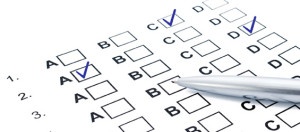
First Impressions
We all speak of the centrality of making a good, indeed proper, first impression. But what makes a good first impression? Is it your brand new suit? Or is it the words, actions, tones and expressions you use during an interview? David Keane, a corporate psychologist with Davitt Corporate Partner, has provided insight into these important questions. Keane has created an infographic, compiled from the responses from over 2,000 ‘bosses’, in order to better comprehend how interviewers gauge those they interview and to understand what exactly are positive and negative interactions during an interview process. These first impressions, as Keane’s infographic notes, are largely based upon non-verbal cues (which have over four times the impact on the impression you make than anything you say). Some of the results are truly startling:
- First impressions are formed within 7 to 17 seconds of meeting someone.
- 93% of people’s judgments of others are based on non-verbal input like body language.
- 38% of a person’s first impression is determined by tone of voice.
Keane provides a number of body language tips and insights in his piece to help you bag your dream job. For interviews, Keane recommends mirroring body language to help build rapport, arched eyebrows to exhibit intrigue, direct eye contact to indicate focus, arms akimbo to display authority and feet facing directly at the interviewer to show that you’re focused solely upon them. Non-verbal mistakes and closed body language in interviews can adversely affect your chances of success. Ace your next interview and keep those signals positive by refraining from: squinting, blinking too much, crossing your arms, shaking your legs, playing with your hair, frowning, poor posture, fidgeting, using too many hand gestures and limp handshakes.  To get another view on first impressions we asked Katie Pilgrim, CPM’s recruitment manager:
To get another view on first impressions we asked Katie Pilgrim, CPM’s recruitment manager:
‘In order to make a good first impression, what would you recommend for a man or woman to wear going into an interview?’
Katie believes that, in general, there is no one-size-fits-all approach for what to wear and for what not to wear in interviews. “It can depend”, notes Katie, “on the style and culture of the organization”. However, Katie finds that there is to extent a certain rule of thumb when it comes to interviews:
“Air on the side of caution - I would recommend matching you attire to the culture of the organization”
“An individual being interviewed for a Sales role in CPM would benefit from adhering to a formal dress code. This is because you will constantly be client facing, and the first impressions that you make are extremely important making a sale.”
“For young, dynamic social media organizations and creative agencies, such as Facebook, Twitter, Google, Cawley Nea or Publicis, I would go with the following:
Men - loafers, chinos, shirt, jumper, no tie.
Women - Dress/Casual Trousers and Shirt, blazer, and high heels if you feel comfortable in them.
If the job being interviewed is more innovative in its nature - grab the attention of the interviewer with a pop of colour to demonstrate your creative side.”
Katie was also asked:
‘In your experience what is the most common non-verbal mistake in interviews?’
“Slouching and poor posture is all too common and incredibly unappealing in interviews. However I have found that most non-verbal communicative mistakes are more a result of nerves rather than character flaws. Fidgeting is a regular occurrence in interviews. Avoid this by controlling your breathing, and arriving early and unhurried to the interview.”
Katie believes that mirroring the interviewer’s body language can also be problematic. If the individual interviewing you is overly casual (engaging with you in a relaxed expression, tone and body posture), Katie believes that you shouldn’t attempt to copy their actions, as it will not reflect favourably on the professional demeanour that you are trying to project. Don’t be fooled by laid-back appearances – do as I say, not as I do.
Interviews can be adrenaline fuelled occasions. We’ve all heard of the crippling stresses and shocks of interviews that can adversely affect one’s performance and indeed their first impression. Interviews can therefore inevitably affect your chances of success. With this in mind, is there a remedy to these intrinsic faults of interviews? Or will businesses have to rely on this apparently streamlined employment method to locate and recruit the cream of the crop?
David Keane believes that with psychometric testing there may very well be a solution. Psychometric means ‘mind measurement’. There are two main categories in these cognitive tests which measure psychological skills (abstract thinking, verbal and numerical reasoning etc.); and personality traits. The tests can assess the intangible and discover what can be frequently overlooked such as an individual’s cognitive talents, resilience and capacities. Psychometric tests can be used to your own advantage as they can highlight strengths, help locate weakness and point your career in the right direction. “Knowing what you are good at is probably the most important thing in career success,” says corporate psychologist Amber Hanna, “and many people neglect it.”
Amber Hanna and David Keane of DavittCP, in an interview with the Irish Times, found that the numbers coming to their company looking for psychometric testing has actually increased since the economic slowdown. Out of necessity some have come to DavittCP in search of greener job pastures, but many are now coming on their own accord as psychometric tests are simply giving them confidence to pursue long-held goals. Doing a psychometric test will help the candidate further understand where there strengths and weaknesses lie and then ensure that they pick a job that they know they can excel in and will in turn enjoy. Steve Jobs once said:
“You’ve got to find what you love. And that is as true for your work as it is for your lovers. If you haven’t found it yet, keep looking. Don’t settle.”
CPM’s Katie Pilgrim finds that there are a wide range of tests that you can carry out to get a better understanding of an interview candidate’s personality and their strengths and weaknesses for a particular role. For example, CPM uses a holistic approach when employing, for example, someone in a Sales or Merchandising position. Katie finds that this method gives her “a well-rounded picture of the individual and their past experiences.” Furthermore, as CPM is a Field Sales and Marketing company, a holistic approach, to Katie, suits our company and the type of roles (direct sales jobs, merchandisers, demonstrators, sales developers and in-store auditors) that we recruit for.
However, Katie does see the clear utility of psychometric testing. To Katie, for particular positions, psychometric testing can provide considerable insight into the decision-making abilities and cognitive capacities of those under examination:
“Psychometric Testing is another approach that can be used to help make fully informed decisions on potential employees with regards to their competencies and culture fit.”
“The test can measure a range of skills including numerical, verbal, abstract and logical reasoning as well as personality traits.”
“Recruitment for senior management positions, especially the upper echelons of HR, can benefit greatly from psychometric testing as these methods can ensure that the examined have the right fit for the business and, most importantly, its firm culture.”
Katie finds that organizations cannot rely purely upon first impressions from an interview to fully comprehend a candidate’s proven strengths and future potential: “With hundreds of CVs piling in the door for just one role these days, recruiters need other processes and testing models to help whittle down the candidates and ensure that they are getting the pick of the bunch.” First impressions are important, however, to rely purely upon their impact would be a poor decision to make when deciding to employ one individual over another. With increasing competition for jobs year on year, recruiters must go past first impressions and adopt new, innovative methods in order to get the best candidate for a job.
For more information on David Keane's findings or DavittCP follow these links:
http://gradireland.wordpress.com/2014/05/19/creating-a-first-impression-is-it-what-you-say-or-how-you-act/
&
http://www.davittcorporatepartners.com/





 2 minute read
2 minute read

